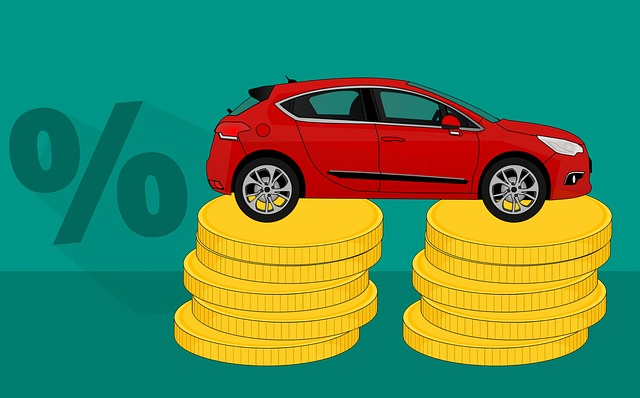Does My Personal Auto Insurance Cover Business Use

Many individuals utilize their vehicles at times to support various work responsibilities. Whether it’s transporting equipment, delivering products to clients, or occasionally driving coworkers, using one’s automobile as a complement to one’s business operations is common. However, it is important to understand the insurance implications when vehicles normally insured for personal use take on commercial aspects.
This guide will help you distinguish the differences between personal and commercial auto insurance policies, explain how both commercial auto policy and personal auto insurance policy amounts and terms can be impacted by business utilization, and provide best practices for keeping coverage valid as transportation needs evolve.
What is Personal Car Insurance for Business Use
Defining exactly what constitutes “business use” of a personally owned automobile is an important starting point when examining insurance implications. For most providers, business use refers to any driving connected to income generation or employment tasks. This includes transporting work tools, traveling to meet with clients, making deliveries for a business you operate, or utilizing your car as part of ridesharing or delivery service work.
However, some occasional activities like an infrequent commute to another work location or driving a coworker to a meeting may be overlooked. Regular usage takes on a much different meaning, such as operating a small transportation service necessitating professional driving as the primary application of the vehicle.
Distinguishing between sporadic, infrequent situations and persistent commercial operations provides clarity on an insurance agent’s stance regarding coverage changes or additions. Open dialogue with the company cars your insurance agent allows for all vehicular employment applications to be fully detailed for accurate assessment of coverage needs.
Comparison Between Private Passenger and Commercial Auto Insurance
The distinction between private passenger auto insurance and commercial auto insurance policies is important to understand when examining coverage for business vehicle use. Private passenger policies are designed for personal driving needs and commuter transportation.
These agreements have lower premium rates but typically do not offer coverage if vehicle ownership is used as part of work duties or revenue generation. Commercial car insurance plans, alternatively, are meant to insure vehicles engaged in employment or business obligations like deliveries or services transporting tools, supplies, and employees. While premiums for commercial auto policy coverage are higher due to the greater liability involved, this policy appropriately ensures business transportation needs.
Proper assessment of a business whose ” does my personal auto insurance cover business use” coverage cover business use car insurance policies and cover business use needs depends on accurately categorizing business use as occasional or regular, so the correct ” does my personal auto insurance cover business use” coverage cover business use” protection can be selected to match situations of professional transportation use legally and financially.
Factors that Determine Business Use Coverage
Several important factors help determine if a personal auto insurance policy will include coverage for business use of the insured vehicle. Primary considerations involve how regularly the vehicle is used for employment or revenue-generating purposes. The frequency of driving for work tasks impacts eligibility, as does whether professional transportation comprises the primary operational function of the vehicle.
The additional assessment looks at the type of work performed and any liability it may carry, such as transporting goods, tools, equipment, or passengers. Insurers also examine compensation aspects like reimbursement for mileage or wages associated with business transportation duties.
Taking all these elements into account assists underwriters in deciding the level of business use that can be accommodated under a private-only car insurance policy or if a commercial auto insurance policy is necessitated. Policyholders must evaluate individual circumstances through this lens to ensure activities have appropriate protection.
Occasional Business Use Policies Stipulations

Most personal auto insurance policies will permit occasional or incidental business use of an insured vehicle without requiring a change in coverage. Insurers recognize that limited work transportation needs may come up infrequently and do not fundamentally alter the primary personal use of the automobile. Stipulations for allowed low-level business driving typically focus on irregularity and comprise a small portion of total mileage.
For example, a policy may state that no more than 10-15% of an automobile’s annual miles may be accrued from business duties and define occasional as averaging less installment once per week. Incidental also implies no compensation or income generation tied to the vehicle for business trips. As long as business transports stay within these criteria outlined by individual agreements, policyholders can maintain standard personal automobile coverage. However, it remains essential to notify insurers of any business use so activity quantities can be properly monitored.
Consequences of Not Informing Insurers About Business Driving
Failing to disclose any business use of a personal vehicle to an auto insurance provider can result in adverse consequences if a claim later arises from employment-related driving. Insurers typically do not look favorably upon policyholders who neglect to mention professional transport obligations, which may alter coverage needs and risks. If an accident occurs during undisclosed business travel, the insurer maintains every right to investigate the incident thoroughly.
Should business transportation purposes come to light, the non-owned personal auto policy or insurance company can legally deny coverage for the claim. Without notification, does my own personal auto policy or personal car insurance cover business use, damages, and liability stemming from business activities that would not have been factored into the business car insurance, or does my non-owned auto insurance or personal car insurance business use, car insurance, policy at all.
A denied claim leaves the financially responsible party without protection from expensive lawsuits, repair fees, or injury costs. Full transparency with insurers avoids uncertainty with insurance company claim handling and catches any necessary adjustments to policy terms or premiums upfront.
Business Use Limits Coverage Change Limits
Most personal auto insurance policies will only extend limited coverage for infrequent or occasional business use before higher premiums or different coverage is required. The allowed threshold for business miles or percentage of total miles driven for work purposes varies between insurers. As a general guideline, driving for employment that makes up 20% or less of annual miles is usually acceptable without changes under many standard personal auto policies.
However, suppose business use rises above this level, approaching 30% of miles or higher. In that case, insurers will typically require an upgrade to a commercial policy or premium increases proportionate to the heightened risk. Maintaining awareness regarding the proportion of work transportation helps determine when policy adjustments or reclassification may be necessary. Communicating openly with providers allows accurate accommodations to be made.
Reasons Personal Auto Insurance Coverage Doesn’t Include Regular Business Driving
There are understandable reasons why personal auto insurance companies would choose not to cover a leased vehicle for regular, consistent business driving duties. Primary among them is the higher risk profile associated with commercial vehicle use. Regular delivery schedules, transporting clients, trade work, and other employment-related transportation tasks see automobiles exposed to more driving time under varying conditions and with a greater likelihood of accidents than personal commuting and errands.
This increased exposure necessitates corresponding increases in liability coverage minimums that accompany most commercial auto insurance policies. Additionally, income factors like earned wages from jobs requiring transportation could lead to greater legal pursuit of financial recompense in the event of a serious crash.
While personal insurance often aims to protect average commuter and recreational drivers, professional transportation demands necessitate more robust coverage adapted specifically for commercial vehicles and business needs. Not providing additional coverage puts the driver, passengers, and public safety at risk if parties involved in regular business activities aren’t properly insured.
Options for No Coverage on Personal Auto Insurance Policy for Business Use

If a private personal automobile insurance policy does not extend coverage to include regular business use of a vehicle, several options exist to still have protection for employment transportation responsibilities. For those who routinely use their car as part of ridesharing, delivery, or other transportation service work, signing up for commercial plans specifically designed for these commercial transportation applications would ensure proper protection.
Those with vehicles and occasional business needs that surpass private, personal car insurance, or commercial vehicle insurance and policy allowances could explore expanding existing, used personal car insurance policies or commercial auto insurance policy coverage to accommodate their circumstances.
Business owners who regularly use company-owned vehicles for duties not eligible under consumer or commercial auto insurance coverage should contact their cars or commercial vehicles owned by car insurance carriers. Evaluating alternative collision coverage possibilities keeps drivers and companies legally defended as lives and livelihoods sometimes rely upon reliable transportation for employment responsibilities.
Business Use Without Compensation
When using a personal car for business without compensation, an important consideration is whether it will be covered under a standard personal auto insurance policy. Many policies allow for occasional business use as long as it is intermittent and incidental to personal transportation needs.
However, driving a commercial vehicle while engaged in regular unreimbursed activities directly related to running a business or self-employment could exceed these casual exceptions. The higher risk of commercial vehicle operation means underwriters may not include this kind of non-paid employment insurance covering business use or chauffeuring under a private passenger plan.
Policyholders should check with their insurer for guidance on how insurance covers business use purposes. For example, these would impact coverage obligations and eligibility if an accident occurred during unpaid self-employed or non-employee-covered insurance coverage, business use, or transportation.
Adding a Commercial Auto Policy
For those who need insurance protection for business travel that exceeds allowances under a personal auto policy, adding a commercial auto insurance plan is an option. This type of policy is tailored to cover vehicles used in income-generating operations like paid transportation services or job duties where the vehicle itself is essential. Commercial plans come with higher premium costs but provide robust liability protection for on-the-job activities.
Professional drivers and small business owners can ensure lawful, non-owned commercial auto insurance and coverage for their vehicles and non-owned commercial auto insurance and responsibilities by investigating rates from commercial car insurance carriers. Getting business vehicles properly insured avoids uncertainties if an accident happens while conducting employment obligations. Commercial auto insurance plans offer the security necessary insurance to cover business vehicles and to legally and safely handle ongoing commercial vehicle transportation tasks.
Comparing Costs of Personal and Commercial Auto Insurance
Comparing the costs of personal car insurance versus commercial coverage can help determine the most suitable option for a driver’s transportation needs. Premium pricing factors in variables like liability exposure, vehicle usage proportions, and business operation types. For personal policies allowing limited work transport, rates remain relatively inexpensive since leisure remains the primary use. However, higher risks of commercial activities justify heavier commercial premiums.
Regular employment obligations elevate costs further than casual business miles. However, in gap insurance, the degrees of liability protection provided also differ greatly. While personal plans may deny work-related claims, most commercial insurance plans are customized to receive coverage for on-duty incidents and medical expenses.
Drivers need to balance premium affordability against risks of underinsurance. Consultations with both personal and commercial insurance carriers provide rate estimates for evaluating options. This diligence ensures activities stay properly covered at each coverage phase.
Liability Limits for Business Activities
When using personal auto insurance on cars for business purposes, it is important to understand the required liability limits for protection during such activities. Commercial policies typically mandate much higher financial liability thresholds than personal auto plans to adequately cover work-related accidents and risks. For instance, commercial coverage may require combined single limits of $1 million, compared to the state minimum for personal drivers.
Business responsibilities like transporting clients or goods necessitate robust liability coverage amounts. Failure to meet obligations exposes owners and drivers to substantial liability lawsuits if an incident occurs while on commercial duties. Checking minimum liability needs with insurers ensures protection from litigation costs, legal fees, and settlements in case an accident happens during business transportation assignments.
Business Property Transported in Personal Vehicles
Verifying insurance coverage for such property is prudent for those who utilize their vehicles to transport equipment or goods for business purposes. Standard personal auto policies may only extend limited coverage, if any, for materials transported regularly for work. While occasional carriage of job supplies would likely qualify as casual use, consistent transportation of stock, tools, and other proprietary materials for employment raises commercial exposure.
Property damage or loss during for-profit transportation needs suitable business owners for protection. Insurers can inform business owners of what valuables in company vehicles would be insured under personal plans versus commercial alternatives, optimizing cargo protection. Ensuring a business owner that property remains covered while the company vehicle is en route prevents financial responsibility for replacement if mishaps occur while the company car is transporting supplies.
Filing a Business Use Claim After an Accident
If one finds themselves in the unfortunate situation of being involved in an accident that requires an insurance claim during a time when their vehicle was being used partially for business purposes, it is important to be aware of how their insurer may process the claim.
The insurance company will likely want to gather details about the incident itself as well as examine documentation like vehicle records, registration paperwork, and repair invoices.
They will also want to interview the driver to better understand how the vehicle is typically used between personal and business errands versus work-related tasks. The ultimate goal is for the insurer to ensure the claim aligns with what is outlined in the personal auto insurance policy terms so they can properly assess coverage.
Investigation Process if Business Use is Suspected
If, during an insurance investigation, it is discovered that a personal vehicle has been used for business purposes more extensively than what was outlined in the policy without the driver risk insurer insurance agent’s awareness, there is significant potential for any resulting claim to be denied. These non-compliance situations with the terms of personal insurance coverage could write off the coverage which leaves the personal vehicle owner responsible for repair costs or medical bills out of pocket.
Potential Denied Claims and Risk of Lapsed Coverage
In situations where you intend to or already use your vehicle for commercial purposes, it is essential to guarantee proper coverage. To do this, you are required to disclose all transportation-related details to the body handling your insurance. The details should include all the drivers of the vehicle and also cover the ways that the vehicle has been used.
Providing underwriters with full visibility allows them to design customized policies that accurately account for the complete spectrum of exposures. Any occasional drivers or sporadic business uses left out, regardless of frequency, may end up increasing the potential for denied liability protection down the road.
You will also need to re-evaluate how much coverage of the protection measures in situations where you hire new employees. This helps to ensure that your protection measures remain valid as you go on with your own business again.
Importance of Fully Disclosed All Drivers and Usages
If you are using your automobile to complete work operations, it’s always best to note the coverage limits and specifics of insurance. You can get all this information from your insurance service provider to help you get up to speed with how important it is to fully disclose your vehicle’s operational information.
If you have the necessary information available to your insurer, it lets you enjoy the full benefits of your insurance package which entails everything in the comprehensive coverage and agreement. You also get to know of any setback early before it reaches the point where no help can be offered, especially if the damage has been done.
Conclusion
Properly insuring vehicles used for business purposes, whether regularly or infrequently, requires diligent communication with insurance providers. Staying transparent on duties and authorized drivers keep coverage valid when needed most. Taking steps to comprehend usage restrictions and maintaining compliance minimizes liability risks from commercial transportation tasks. With the appropriate planning and disclosure, insured drivers can legally and securely transport for occupational responsibilities.



